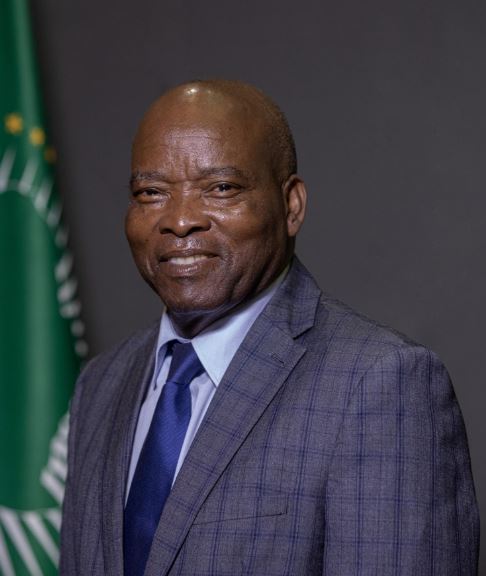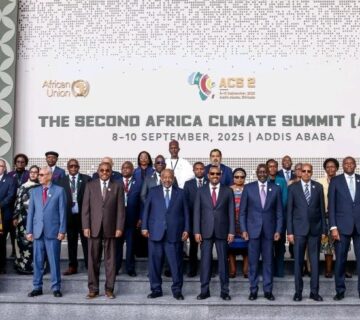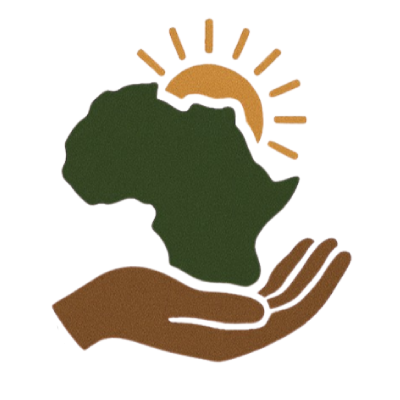At the close of the Africa Climate Summit 2 in Addis Ababa, Ethiopia, on September 10, 2025, H.E. Moses Vilakati, Commissioner for Agriculture, Rural Development, Sustainable Environment and Blue Economy of the African Union Commission, described the adoption of a comprehensive declaration as a milestone for Africa’s climate agenda.
Speaking at the press conference, Vilakati commended the strong political representation at the Summit, with presidents, prime ministers, vice presidents, and ministers in attendance. He noted that this level of participation underscored the urgency of the climate crisis and the shared will to address it. “At the end of the day, we had a declaration. This is a thick document with several sections, and one of its most critical areas is unlocking scalable climate finance. We recognise that without finance, Africa cannot adequately address the climate challenge,” he said.
The Commissioner explained that the declaration placed strong emphasis on a just transition from coal to renewable energy, urging governments and stakeholders to prioritise sustainable and climate-resilient energy infrastructure. He further pointed to green transition pathways for mineral resources, stressing the need for reliable, diversified, and fair supply chains of green minerals essential to low- and zero-emission economies. “Some of these minerals,” he added, “are the very resources that can help us reduce emissions if harnessed responsibly.”
Food and agriculture were also central to the discussions. Vilakati highlighted the importance of tackling food insecurity, hunger, and malnutrition, calling for greater productivity and investment in African food systems. He revealed that the AU plans to roll out soil mapping across the continent to guide crop selection and reduce Africa’s staggering $70 billion annual food import bill. “That bill simply means we are exporting money,” he remarked, while emphasising the role of nature-based solutions and homegrown responses to climate change.
To advance this, Vilakati announced plans for a continental knowledge platform on nature-based solutions, designed to track progress and enhance biodiversity. He also pointed to technology-based solutions, including low-cost early warning systems, as vital for building resilience.
The Commissioner raised concern over climate-induced displacement and conflict, urging urgent implementation of the Summit’s call to action. He appealed to financial institutions to support Africa with instruments such as green bonds and climate-resilient innovation hubs, which he said are critical to empowering farmers, communities, and governments.
Looking ahead, Vilakati stressed the importance of coordinating national climate, energy, and development strategies to ensure coherence across the continent. He confirmed that Africa would take its unified position forward to COP30 in Brazil.
“The African Union is at the forefront of this effort,” Vilakati affirmed. “We are supporting member states to design frameworks and develop bankable projects that can access climate finance. Africa is diverse, but our strength lies in consensus. Even with divergent views, we find common ground, and that is how we produced this landmark declaration. It is a roadmap for a just, sustainable, and united Africa in the face of climate change.”






No comment